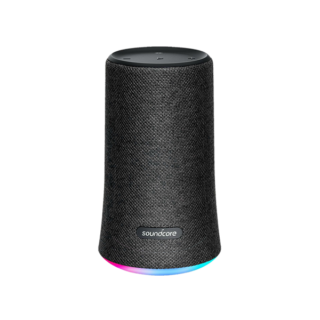Category
Popular
-
 Suspendisse gravida lacus varius
Rated 1.00 out of 5
Suspendisse gravida lacus varius
Rated 1.00 out of 5$33.00Original price was: $33.00.$22.00Current price is: $22.00. -
 Aliquam erat volutpat
Rated 2.00 out of 5$50.00
Aliquam erat volutpat
Rated 2.00 out of 5$50.00 -
 In fringilla felis non nulla porta rutrum
Rated 3.00 out of 5
In fringilla felis non nulla porta rutrum
Rated 3.00 out of 5$78.00Original price was: $78.00.$65.00Current price is: $65.00. -
 Suspendisse volutpat massa
Rated 4.00 out of 5$39.00
Suspendisse volutpat massa
Rated 4.00 out of 5$39.00 -
 Cras viverra rhoncus
Rated 5.00 out of 5$84.00
Cras viverra rhoncus
Rated 5.00 out of 5$84.00

Introduction to E-commerce Platforms
E-commerce platforms have revolutionized the way consumers interact with products and services, forging a significant transformation in the digital economy. These online marketplaces offer a diverse range of commodities, from everyday necessities to luxury items, all accessible with just a few clicks. The e-commerce landscape is characterized by its rapidly evolving nature, driven by technological advancement and shifting consumer preferences. Among the myriad of platforms, Amazon stands as a titan, exemplifying the profound impact of e-commerce on global shopping habits.
Amazon’s trajectory from a modest online bookstore to an all-encompassing digital marketplace showcases the potential of e-commerce. Founded by Jeff Bezos in 1994, Amazon’s early focus on books provided a foundation for expansive growth. The platform’s business model, which emphasizes customer-centricity, extensive product selection, and efficient delivery mechanisms, has been pivotal to its success. Amazon’s innovative approach, including the introduction of Prime membership, one-click purchasing, and groundbreaking logistics solutions, has set industry standards and propelled it to forefront of online shopping.
The success story of Amazon underscores the importance of competition in the e-commerce domain. The dynamic nature of this sector has spurred the emergence of numerous other platforms, each striving to carve out a niche in an increasingly crowded market. These competitors highlight the diversity and depth of the e-commerce ecosystem, providing alternatives that cater to specific consumer needs and preferences. The presence of multiple robust platforms ensures continual innovation, benefiting consumers through improved services, better prices, and a wider array of products.
The following sections of this blog post will delve deeper into prominent e-commerce platforms that rival Amazon, examining their unique features, business strategies, and contributions to the digital marketplace. By exploring these platforms, readers will gain a comprehensive understanding of the current state of e-commerce and the strategic mechanisms behind the success of sites like Amazon.
Top Alternatives to Amazon: Features and Benefits
The e-commerce landscape is vast, with numerous platforms offering distinctive features and benefits that rival Amazon. Each of these alternatives caters to different consumer needs, providing unique advantages that make them worthy of consideration. Here, we delve into the specifics of some top e-commerce platforms such as eBay, Alibaba, Walmart, and Shopify, examining their business models, target audiences, and overall experience.
eBay
eBay stands out as one of the most recognizable names in the online marketplace space. Primarily known for its auction-style listings, eBay also allows for fixed-price listings akin to traditional e-commerce. This model appeals to both bargain hunters and sellers looking for quick sales. With a global reach, it offers a diverse range of products, including rare and unique items often not found on Amazon. eBay’s customer service provides buyer protection programs, ensuring secure transactions, and fostering trust among users.
Alibaba
Alibaba, predominant in the B2B sector, connects international buyers with manufacturers and wholesalers, primarily from China. This platform is ideal for businesses looking to source products at wholesale prices. Alibaba’s extensive network of suppliers offers myriad products, from electronics to clothing and machinery. Due to its bulk purchasing model, Alibaba stands out for competitive pricing. However, the shipping times are generally longer compared to other platforms, which is a trade-off for more cost-effective procurement.
Walmart
Walmart’s e-commerce platform mirrors its physical retail strategy by focusing on offering a broad range of products at everyday low prices. Its online store grants customers access to a vast inventory, including groceries, electronics, and apparel. Walmart’s shipping options are robust, featuring free two-day delivery for many items and expedited shipping services. Their customer service is well-regarded, often leveraging the same high standards found in their brick-and-mortar stores. This combination makes Walmart a formidable competitor to Amazon.
Shopify
As a leading e-commerce solution for businesses looking to build their own online stores, Shopify differentiates itself through its customizable platform. It is ideally suited for entrepreneurs and small businesses seeking to establish a unique brand presence. Shopify offers various tools, including payment processing, inventory management, and marketing analytics, designed to streamline the business operations. With over a million retailers using its service, Shopify supports diverse product categories and custom shipping options, providing flexibility to sellers.
Niche Markets and Specialized Sites
Beyond these giants, niche markets and specialized websites also present valuable alternatives. Platforms like Etsy cater specifically to handmade, vintage, and craft items, appealing to a creative audience looking for unique products. Similarly, sites like Newegg focus on consumer electronics and computer hardware, attracting tech enthusiasts with competitive prices and detailed product information. These specialized marketplaces offer tailored customer experiences that can be more personalized and engaging than mass-market platforms like Amazon.
Overall, each of these e-commerce platforms provides distinctive features, catering to varied consumer needs and preferences. By understanding their unique offerings, shoppers can make informed decisions and explore valuable alternatives to Amazon.
Written by namanalaamri92@gmail.com
Product Showcase








Leave a Reply